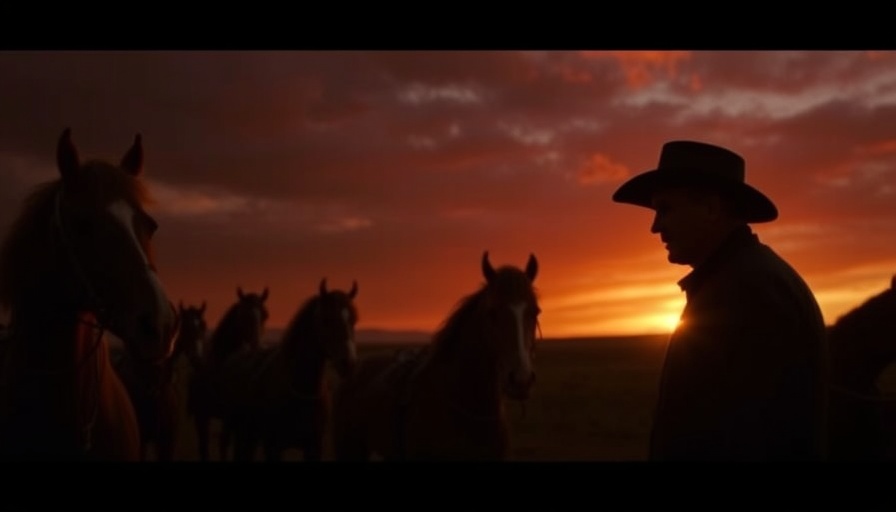
A Timeless Tale of Connection and Belonging
In the landscape of classic cinema, few films resonate with the same warmth as John Ford's "Wagon Master". Released in 1950, this film represents more than just a story of a Mormon wagon train; it epitomizes the universal longing for belonging and understanding in a world often fraught with turbulence and division. The film’s essence serves as a reminder of the core values of community and acceptance that are critical, especially for today’s digital nomads seeking solace in shared experiences.
Exploring the Gentle Heart of the West
At first glance, "Wagon Master" may appear to be another straightforward western, but it is far more nuanced. Ford’s approach is characterized by his ability to weave deep emotional threads into the fabric of the simplest narratives. He portrays both the struggles and joys of the characters aboard a wagon train, led by two horse traders, Travis and Sandy. Their journey encapsulates the breadth of human experience, filled with encounters that illustrate the delicate balance between different lifestyles – a sentiment that resonates with digital nomads who often embrace diversity in their travels.
Lessons in Tolerance and Empathy
Ford’s narrative is a heartfelt call for tolerance. The characters in "Wagon Master" come from diverse backgrounds, recently run out of various towns, yet they come together in a quest for a better life, symbolizing the importance of accepting one another’s uniqueness. For modern viewers, particularly those journeying through various cultures, the film serves as an invitation to embrace differences and cultivate understanding both in the communities we create and the relationships we foster.
Visual Composition: A Study in Beauty
One of the standout features of "Wagon Master" is its stunning visual composition. Ford’s cinematography invites us to pause and appreciate the natural beauty of the West, viewed through the lens of a wagon train’s journey. The evocative imagery not only highlights the geographical landscape but transcends it, portraying the emotional terrain that comes with the characters’ experiences. This emphasis on atmosphere can inspire digital nomads to seek out moments of beauty in their surroundings, enhancing their journey's overall experience.
Historic Context: The West and Its Mythology
Understanding "Wagon Master" within its historical context enhances its significance. The post-World War II era was a time of rebuilding in America, and the film’s production came during a significant transformation in the American West mythology. Ford championed the narrative of the common folk overcoming adversity, setting a tone of nostalgia that aligns with the values many seek in today’s uncertain times. The film’s portrayal of communal solidarity can serve as a lesson for those navigating the modern world, finding strength in togetherness against the backdrop of global challenges.
Inspiring Quotes and Anecdotes
Reflecting on the production, Ford’s son Patrick recalls, “Wagon Master was pure of heart and simple and good.” This sentiment resonates today, especially for those searching for deeper meaning in their travels and connections. The simplicity of the film's message often aligns with the minimalist lifestyle espoused by many digital nomads, encouraging reflection and appreciation of life's foundations over material pursuits.
Embracing the Spirit of the Film
Ultimately, "Wagon Master" transcends traditional cinematic narratives. It is a film imbued with grace and gentle wisdom. As digital nomads charter new territories and share experiences across cultures, this film encourages viewers to remain open-hearted, fostering an atmosphere of acceptance. The peaceful yet compelling tale of tolerance and community in "Wagon Master" invites all of us to recognize the beauty in our shared journeys.
To dive deeper into the themes of connection and belonging portrayed in this classic film, embrace a journey through the values of tolerance and compassion, whether in your travels or at home. Cherish the moments that bring us together, just like the characters in Ford’s captivating narrative.
 Add Row
Add Row  Add
Add 




Write A Comment